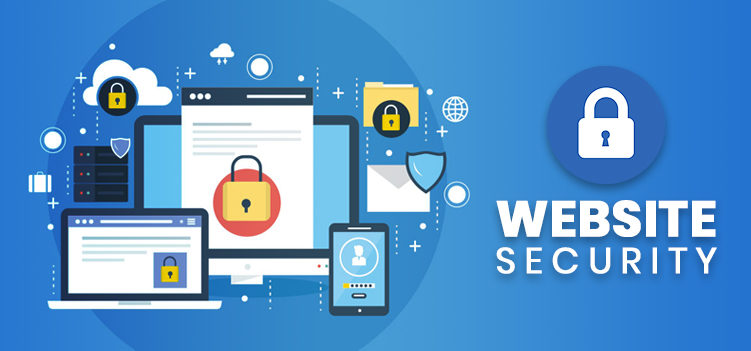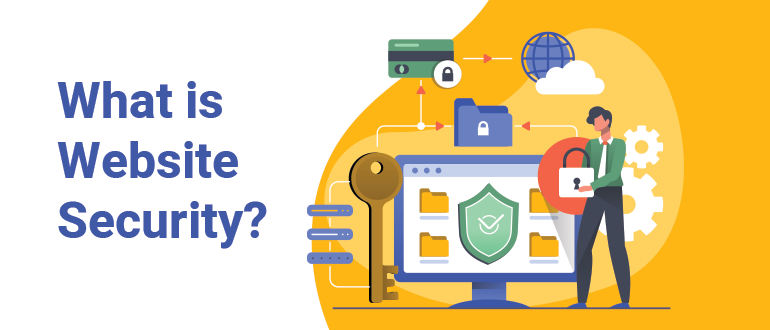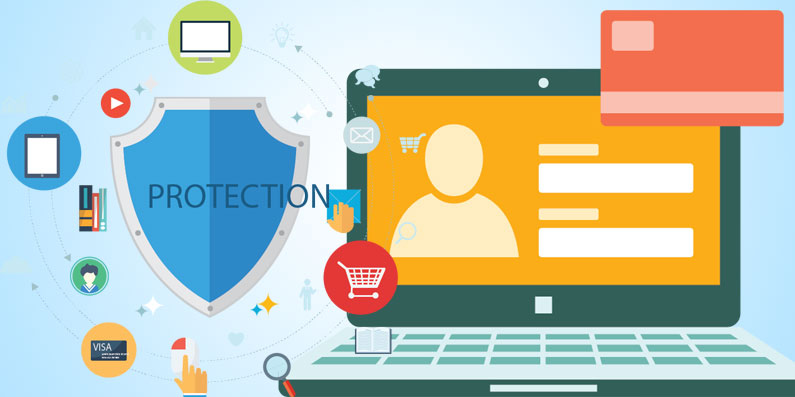What is website security?
DDoS attacks. These attacks can slow or crash your site entirely, making it inaccessible to visitors.
Malware. Short for “malicious software,” malware is a very common threat used to steal sensitive customer data, distribute spam, allow cybercriminals to access your site, and more.
Blacklisting. Your site may be removed from search engine results and flagged with a warning that turns visitors away if search engines find malware.
Vulnerability exploits. Cybercriminals can access a site and data stored on it by exploiting weak areas in a site, like an outdated plugin.
Defacement. This attack replaces your website’s content with a cybercriminal’s malicious content.
Website security protects your visitors from:
Stolen data. From email addresses to payment information, cybercriminals frequently go after visitor or customer data stored on a site.
Phishing schemes. Phishing doesn’t just happen in email – some attacks take the form of web pages that look legitimate but are designed to trick the user into providing sensitive information.
Session hijacking. Some cyberattacks can take over a user’s session and force them to take unwanted actions on a site.
Malicious redirects. Certain attacks can redirect visitors from the site they intended to visit a malicious website.
SEO Spam. Unusual links, pages, and comments can be put on a site to confuse your visitors and drive traffic to malicious websites.
Why do I need website security?
- Hosting providers protect the server your website is on, not the website itself. You can think of the website-host relationship like an apartment building: management provides security for the whole building, but it’s up to each occupant to lock their door.
- It’s cheaper than a cyberattack. Cyberattacks can cost small businesses as much as $427 per minute of downtime – by contrast, Our customers pay an average of $1-2 per day for website security.
- You’ll protect your reputation and retain visitors and/or customers. Studies show that 65 percent of customers who have had their information stolen by a compromised website won’t return to that site – that’s a devastating number of visitors to lose, especially for a small business or website.
- Malware and cyberattacks can be hard to spot. Cybercriminals specialize in malware that can discreetly enter a site and stay hidden, so your website might be infected and you may not realize it. Some sneaky malware attacks include backdoors, a type of malware that allows cybercriminals to access a site without the owner’s knowledge, and crypto-jacking, which mines websites for cryptocurrency without showing any symptoms. These attacks are increasingly common: in Q2 2018, 43 percent of infected websites had at least one backdoor file, and crypto-jacking continues to rise in popularity, doubling from Q1 to Q2 2018. Once cybercriminals secretly enter your website, they can access your data, steal traffic, deploy phishing schemes, and more – and you may never even notice.
What do I need to secure my website?
An SSL certificate
SSL certificates protect the data collected by your website, like emails and credit card numbers, as it is transferred from your site to a server. This is a basic website security measure, but it’s so important that popular browsers and search engines are now labeling sites without SSL as “insecure,” which could make visitors suspicious of your site. Depending on your site, you may be able to get an SSL certificate for free, but be sure to choose the SSL certificate that’s best for your site.
Remember that SSL only protects data in transit, so you’ll need to take further steps for a fully secure website.
Websites hosted on a content management system (CMS) are at a higher risk of compromise due to vulnerabilities and security issues often found in third-party plugins and applications. These can be prevented by installing updates to plugins and core software in a timely manner, as these updates often contain security patches – you can even use an automatic patching solution to make it easier.
Fortunately, there’s a fast and simple way to get what you need to protect your website. SiteLock makes website security easy and affordable with automated solutions that are easy to install and plans that work for your budget. We offer website scanning with automatic malware removal, a WAF, and automated patching, and we can help you choose an SSL certificate too. Chat with us or give us a call at +91 63-94-777-105.












0 Comments